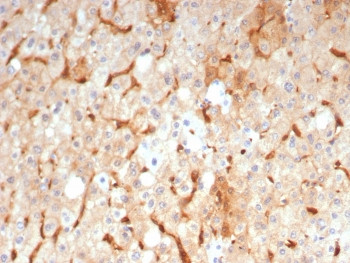Cookie preferences
This website uses cookies, which are necessary for the technical operation of the website and are always set. Other cookies, which increase the comfort when using this website, are used for direct advertising or to facilitate interaction with other websites and social networks, are only set with your consent.
Configuration
Technically required
These cookies are necessary for the basic functions of the shop.
"Allow all cookies" cookie
"Decline all cookies" cookie
CSRF token
Cookie preferences
Currency change
Customer-specific caching
FACT-Finder tracking
Individual prices
Selected shop
Session
Comfort functions
These cookies are used to make the shopping experience even more appealing, for example for the recognition of the visitor.
Note
Show the facebook fanpage in the right blod sidebar
Statistics & Tracking
Affiliate program
Conversion and usertracking via Google Tag Manager
Track device being used
| Item number | Size | Datasheet | Manual | SDS | Delivery time | Quantity | Price |
|---|---|---|---|---|---|---|---|
| NSJ-V4662SAF-100UG | 100 µg | - | - |
3 - 10 business days* |
752.00€
|
If you have any questions, please use our Contact Form.
You can also order by e-mail: info@biomol.com
Larger quantity required? Request bulk
You can also order by e-mail: info@biomol.com
Larger quantity required? Request bulk
1 mg/ml in 1X PBS, BSA free, sodium azide free. GBP1 (guanylate binding protein 1) is a 592 amino... more
Product information "Anti-GBP1 / Guanylate binding protein 1, clone GBP1/7617"
1 mg/ml in 1X PBS, BSA free, sodium azide free. GBP1 (guanylate binding protein 1) is a 592 amino acid protein member of the GTPase protein family and is able to bind specifically to guanine nucleotides such as GMP, GDP and GTP. GMP is hydrolyzed to GTP in two consecutive cleavage steps, both of which are carried out by GBP1. Localized to the cytoplasm, GBP1 is expressed in endothelial cells of the vascular system and is induced by IFN-g during macrophage induction. GBP1 is thought to regulate the expression of MMP-1, which mediates the proliferation and invasiveness of endothelial cells. GBP1 plays a key role in regulating inflammatory cytokines and provides protection against vesicular stomatitis and encephalomyocarditis viruses. GBP1 expression is highly induced in the vessels of skin diseases such as psoriasis and Kaposi s sarcoma, making it a novel cellular activation marker that characterizes inflammatory cytokines of endothelial cells. Protein function: Interferon (IFN)-inducible GTPase that plays important roles in innate immunity against a diverse range of bacterial, viral and protozoan pathogens (PubMed:22106366, PubMed:29144452, PubMed:16511497, PubMed:31268602). Hydrolyzes GTP to GMP in two consecutive cleavage reactions: GTP is first hydrolyzed to GDP and then to GMP in a processive manner (PubMed:7512561, PubMed:16511497). Following infection, recruited to the pathogen-containing vacuoles or vacuole- escaped bacteria and promotes both autophagy and inflammasome assembly (PubMed:29144452, PubMed:31268602). Promotes host defense against bacterial infections by regulating bacteriolytic peptide generation via its interaction with ubiquitin-binding protein SQSTM1, which delivers monoubiquitinated proteins to autolysosomes for the generation of bacteriolytic peptides. Also acts as a positive regulator of inflammasome assembly by promoting the release of inflammasome ligands from bacteria (PubMed:31268602). Acts by promoting lysis of pathogen-containing vacuoles, releasing pathogens into the cytosol. Following pathogen release in the cytosol, promotes recruitment of proteins that mediate bacterial cytolysis: this liberates ligands that are detected by inflammasomes, such as lipopolysaccharide (LPS) that activates the non-canonical CASP4/CASP11 inflammasome or double-stranded DNA (dsDNA) that activates the AIM2 inflammasome (PubMed:31268602). Confers protection to several pathogens, including the bacterial pathogens L.monocytogenes and M.bovis BCG as well as the protozoan pathogen T.gondii (PubMed:31268602). Exhibits antiviral activity against influenza virus (PubMed:22106366). [The UniProt Consortium]
| Keywords: | Anti-GBP1, Anti-GBP-1, Anti-hGBP1, Anti-HuGBP-1, Anti-GTP-binding protein 1, Anti-Guanylate-binding protein 1, Anti-Guanine nucleotide-binding protein 1, Anti-Interferon-induced guanylate-binding protein 1, GBP1 Antibody / Guanylate binding protein 1 |
| Supplier: | NSJ Bioreagents |
| Supplier-Nr: | V4662SAF |
Properties
| Application: | IHC (paraffin) |
| Antibody Type: | Monoclonal |
| Clone: | GBP1/7617 |
| Conjugate: | No |
| Host: | Mouse |
| Species reactivity: | human |
| Immunogen: | A recombinant partial protein sequence (within amino acids 400-592) from the human protein |
| Format: | Purified |
Database Information
| KEGG ID : | K20899 | Matching products |
| UniProt ID : | P32455 | Matching products |
| Gene ID | GeneID 2633 | Matching products |
Handling & Safety
| Storage: | -20°C |
| Shipping: | -20°C (International: -20°C) |
Caution
Our products are for laboratory research use only: Not for administration to humans!
Our products are for laboratory research use only: Not for administration to humans!
Information about the product reference will follow.
more
You will get a certificate here
Viewed






